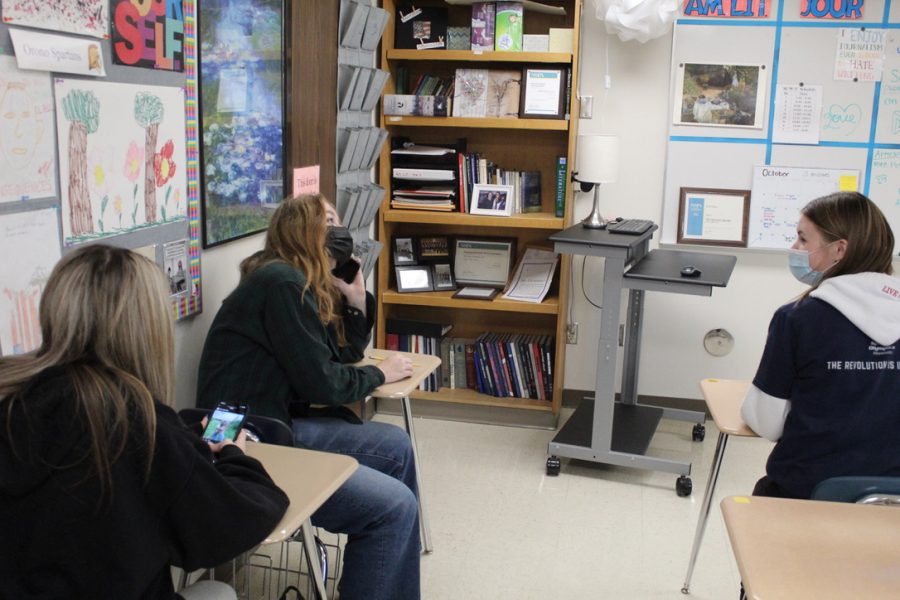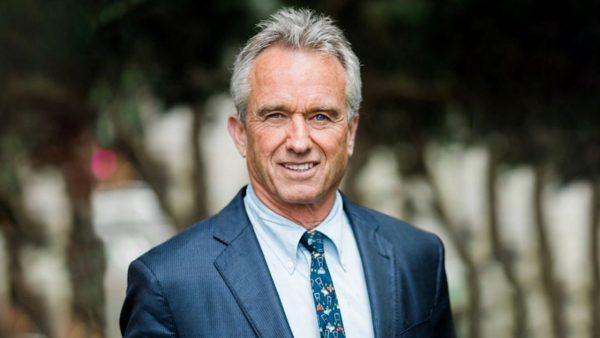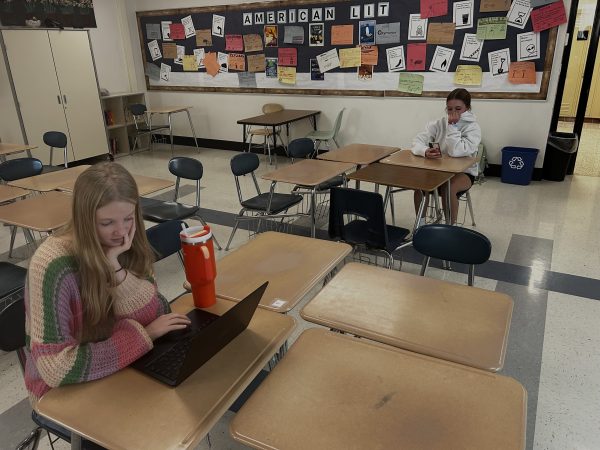Social Media Addictions Leading to Crippling Side-Effects
Students are distracted by their technology/social media accounts during class.
Social media use has been on the rise since the origins of social networking were deployed in the late 1990s. However, the implications of social media have been significant. As a member of Gen-Z, social media use has quickly become a “norm”, despite the worsening consequences it has on kids.
In a sense, social platforms have given students a voice for advocacy, resources for times of adversity and countless communities for relationship building. While there are many indisputable benefits of social media, it would be ignorant to avoid the consequences of it.
There are obvious ways this media harms society, such as increased cyberbullying, mental illnesses, a false sense of reality, cybercrimes and non retractable mistakes. Although, under the surface level there are even greater complexities.
The education of youth is imperative for the future of society. This patent concept has been negatively compromised by social media. As the social media industry continues to grow, a positive correlation with poorer academic performance does as well.
“Students have become much more distracted and are less able to communicate with each other because they are used to doing it with a screen between them,” senior Patrick McCabe said.
According to a comprehensive study conducted by communication researchers for Anadolu University, non-chemical social media addictions have a positive correlation with poorer academic performance in students.
“Dopamine, the pleasure Neurotransmitter, is released- which can lead to an addictive nature to really anything. A lot of app developers know about that. And so they are trying to engineer and design their apps to cause people to get little dopamine rushes. They’ll use algorithms and tailor the app to you, to get you to come back,” Orono High School Psychology teacher, Sara Ibs said.
As of recently, this concept has been highlighted by shows such as The Social Dilemma. Awareness of this reality is increasing, however not nearly fast enough to fight the academic repercussions of social media addiction.
“It makes it really hard to get things done. It just consumes a lot of time and people find themselves very drawn to it and compelled to go on social media- that they don’t even know what’s more important in their lives,” senior Avery Kapsner said.
Following distance learning, sophomore English teacher Kyle Ann Herring has noticed a significant challenge in teaching students with social media and probable cell phone addiction.
“ My students are good, they want to pay attention and be engaged in class, but just can’t stop looking at their phones. It’s all the time; it’s blatant. So you’re hurting yourself and your own learning by being distracted,” Herring said.
According to The Journal of Psychological Research on Cyberspace, many studies show that mental health problems are associated with stress, anxiety, depression and long-term decreased well being. Eventually noting the negative impacts this addiction has on developing adolescents’ self-esteem.
Reflecting sentiments from students and faculty, as well as communication and psychological research, developing a social media addiction is extremely easy. However, the consequences of it impair one’s standard of living for the present and future.
The first step in combating addictive generational standards and norms is awareness and acceptance of the issue. This is where Tristan Harris, the founder of Center of Humaine Technology, as well as the former design ethicist at Google, has important sentiments to come to reality with.
According to Harris, social media companies employ user-specific algorithms to engineer addiction to the app. This generates more money for the company, while simultaneously increasing users’ dependency on the application.
Understanding the complexities of the science behind this psychological engineering is arguably off-setting. Though, scientists warn of the importance of reducing social media consumption, especially for younger generations.
“The brain is very plastic when you are younger. And so the neural networks and their formation/brain recognition can be much more dramatic and permanent, then someone who is older,” Sara Ibs said.

Hi, my name is Libby Engebretson! This is my third year on the Spartans Speaks, and I am currently an Editor in Chief. In my free time, I enjoy reading,...
















Sarah Cole • Nov 18, 2021 at 7:28 pm
What a well-researched article, Libby! This is an operant read for all students.